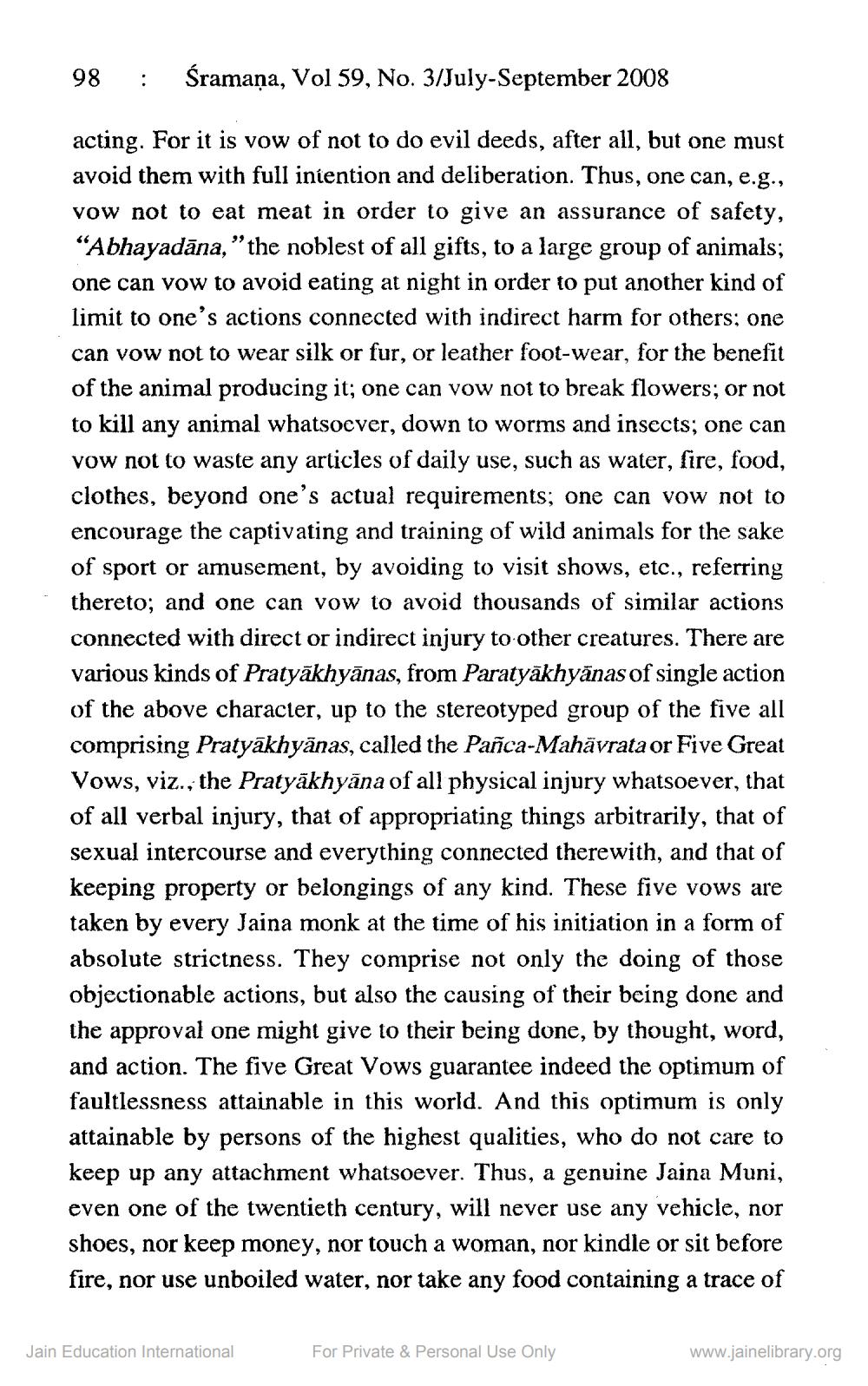________________
98
:
śramaņa, Vol 59, No. 3/July-September 2008
acting. For it is vow of not to do evil deeds, after all, but one must avoid them with full intention and deliberation. Thus, one can, e.g., vow not to eat meat in order to give an assurance of safety, "Abhayadāna, "the noblest of all gifts, to a large group of animals; one can vow to avoid eating at night in order to put another kind of limit to one's actions connected with indirect harm for others; one can vow not to wear silk or fur, or leather foot-wear, for the benefit of the animal producing it; one can vow not to break flowers; or not to kill any animal whatsoever, down to worms and insects; one can vow not to waste any articles of daily use, such as water, fire, food, clothes, beyond one's actual requirements; one can vow not to encourage the captivating and training of wild animals for the sake of sport or amusement, by avoiding to visit shows, etc., referring thereto; and one can vow to avoid thousands of similar actions connected with direct or indirect injury to other creatures. There are various kinds of Pratyākhyānas, from Paratyākhyānas of single action of the above character, up to the stereotyped group of the five all comprising Pratyākhyānas, called the Pañca-Mahāvrata or Five Great Vows, viz., the Pratyākhyāna of all physical injury whatsoever, that of all verbal injury, that of appropriating things arbitrarily, that of sexual intercourse and everything connected therewith, and that of keeping property or belongings of any kind. These five vows are taken by every Jaina monk at the time of his initiation in a form of absolute strictness. They comprise not only the doing of those objectionable actions, but also the causing of their being done and the approval one might give to their being done, by thought, word, and action. The five Great Vows guarantee indeed the optimum of faultlessness attainable in this world. And this optimum is only attainable by persons of the highest qualities, who do not care to keep up any attachment whatsoever. Thus, a genuine Jaina Muni, even one of the twentieth century, will never use any vehicle, nor shoes, nor keep money, nor touch a woman, nor kindle or sit before fire, nor use unboiled water, nor take any food containing a trace of
Jain Education International
For Private & Personal Use Only
www.jainelibrary.org




